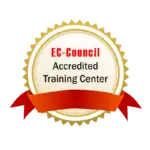According to the most recent predictions, there will be a 13% growth in tech jobs by 2026, making it one of the most lucrative and interesting areas to work in today.
This suggests that any job seeker has excellent chances in the tech industry.
However, making transitioning into tech profession can be challenging but rewarding at the same time.
Here are some tips you can take to make the move successful if you’re thinking about doing so.
Tips for transitioning into tech Career

- Learn more about the tech business by doing some research: It’s important to have a clear understanding of what you want to do before you start looking for employment prospects or spending money on education or training. To find out what might be a suitable fit for you, research various tech roles and firms. To find out more about the field and network with experts, think considering joining online communities or going to meetups.
Additionally, you’ll get the option to converse with those who have already made the shift and ask them questions.
- Obtain relevant knowledge and experience: If you lack a technological background, you may need to spend money on training or education to acquire the necessary abilities for a tech position. This can entail finishing certification courses, enrolling in online bootcamps or degree in a related sector. It’s crucial to pick a course or program of study that fits your needs in terms of schedule, finances, and ambitions.
Keep in mind that formal education isn’t always required to work in the computer sector; some people have succeeded by studying independently and taking on side jobs.
- Update your resume and online profiles to reflect your technical knowledge and talents. Online platforms like LinkedIn are a good place to start. Include any relevant side projects, personal projects, schooling, or other tasks. It’s a good idea to target your online profiles and CV at employers or businesses you’re interested in.
- Develop your professional network: For example, in the IT sector, networking is essential for locating opportunities. To boost your visibility and network, you can go to industry events, join relevant online organizations, and connect with people online specially on LinkedIn. You can find out about employment openings, obtain referrals, and get insightful and helpful advice by creating a network of contacts.
- It’s essential to be open to learning and developing as you make the shift to a career in technology. It’s critical to keep up with the most recent trends and technologies because the technology sector is always changing. This could entail taking on more coursework or certificates, joining professional organizations, or attending conferences or workshops.
- Keep an open mind: Even if they may not be exactly what you had in mind, be willing to examine various IT roles in other firms with other formats of a job description. A role that is a little outside of your comfort zone can occasionally open new prospects and experiences.
Job Role That Aligns with What You Want

The roles that are available will depend on the size and nature of the organization you choose to work for.
There are many distinct roles in the tech industry. In the technology sector, some typical occupations include:
- Software engineers: They create, develop, and maintain software applications and systems. They might work on a variety of tasks, including creating system architecture, websites, and desktop and mobile apps.
- Developer engineer: They can automate and streamline the software development and deployment processes. They work at the interface between development and operations.
- Product managers: They are in charge of establishing and prioritizing a product’s features and functionality as well as organizing a team’s efforts to get the product to market.
- Technical project manager: Technical managers can organize, coordinate, and supervise the creation of technical projects, such as IT infrastructure and software development.
- Technical support specialist: Technical support specialists can help consumers or users who are having issues with a good or service with technical support. They could be employed in field service or call centers.
- User experience (UX) designers: They concentrate on the appearance and usability of how good a service is from the user’s point of view. They conduct users research, make prototypes and wireframes, test designs, and refine them.
How can you choose your tech career?

- Choosing the right career
Technology professionals can follow a wide range of career paths because there are so many different occupations in the industry.
Computer hardware or software, design and development, support, or research may be the focus of a tech job. Additionally, even though many jobs call for a certain level of schooling, you can learn technology skills independently or through experience.
Level-based divisions are also possible for typical IT occupations. Most entry-level careers involve positions like computer support.
Web and software development, computer network and database design, and computer systems and information security analysis, however, are more specialized entry-level occupations.
- Highest job salaries
Computer and information technology management has the highest compensation of all technology careers.
Several past reports says that the salary for this occupation, starting from $159,010 in May 2021, was $110,000 greater than the average income for all occupations.
The top 10% of tech management pay earners received yearly income of more than $208,000. Information technology, which pays a median annual salary of $165,940, is followed by finance and insurance, computer systems design services, which pays an annual salary of $162,150, and manufacturing, which pays a yearly salary of $160,010.
- Cls learn help
Technology careers can be accessed in a variety of ways, including through education, experience, or a mix of the two.
CLS Learn can smoothly guarantee for you to transition into any Tech career through her learning paths and determined courses.
We can help you totally comprehend the application of any new technologies by learning how to design and develop them. In addition, we are all about teaching students and mid-level employees how to use technology to discover answers for businesses and healthcare organizations, master’s programs may also use interdisciplinary approaches.
Ready to book your next tech course in CLS Learn?
























